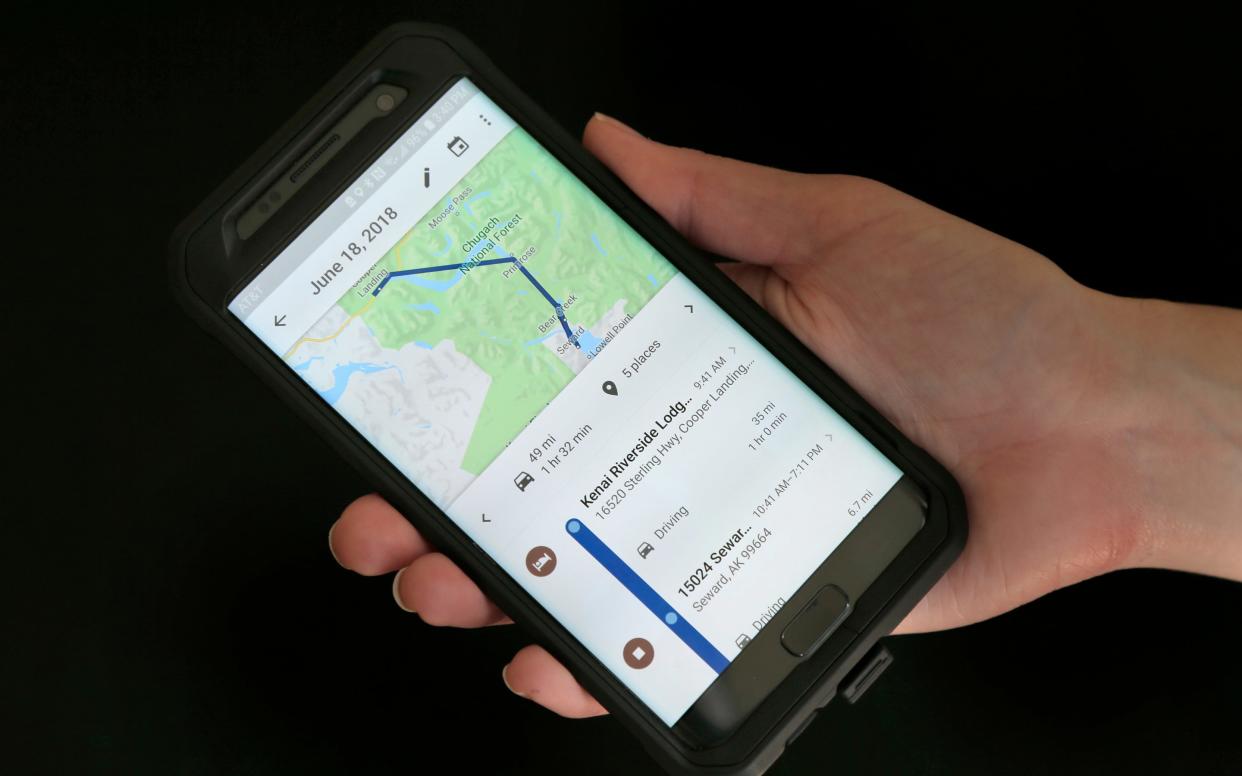Google could face fines in Europe for 'deceptive' way it tracks users

Google could face major fines from the European Union’s privacy watchdogs for the "deceptive" way it track users’ locations.
Consumer agencies in seven European Union countries on Tuesday asked privacy regulators to take action against the firm for allegedly breaching the bloc's new privacy law.
Seven countries, including Czech Republic, Greece, Norway, Slovenia and Sweden, claim location data tracked by Google could help reveal someone’s religious beliefs, political activity, health and sexual orientation.
However, Google has failed to give users "straightforward information" about how their data is being used, they claim.
The allegations come in the wake of the discovery that tracking by Google continues even if users turn off "Location History".
A separate function, Web & App Activity, must be turned off to fully prevent GPS tracking.
“Google’s data hunger is notorious but the scale with which it deceives its users to track and monetise their every move is breathtaking,” Monique Goyens, director general of EU consumer organisation, BEUC, said.

The firm “is not respecting fundamental GDPR principles, such as the obligation to use data in a lawful, fair and transparent manner,” she said.
“The situation is more than alarming. Smartphones are being used for spying on our every move.”
The EU’s General Data Protection Regulation, or GDPR, came into force on May 25.
Under the rules, companies must provide details about how data is collected and retained. They must also give users the “right to be forgotten” and notify the EU’s Information Commissioner’s Office of breaches within 72 hours.
Failure to do so could see firms fined 4pc of the previous year’s annual global turnover, or €20m, whichever is the higher.
A Google spokesman said: "Location History is turned off by default, and you can edit, delete, or pause it at any time. If it’s on, it helps improve services like predicted traffic on your commute."
"If you pause it, we make clear that - depending on your individual phone and app settings - we might still collect and use location data to improve your Google experience."
"We’re constantly working to improve our controls, and we'll be reading this report closely to see if there are things we can take on board," he said.
Google is already facing a lawsuit in the US that for tracking the location of users using their searches and web activity.
San Diego resident Napoleon Patacsil issued the legal challenge in California. He stated that Google's "principal goal was to surreptitiously monitor [the claimant] and to allow third-parties to do the same."

